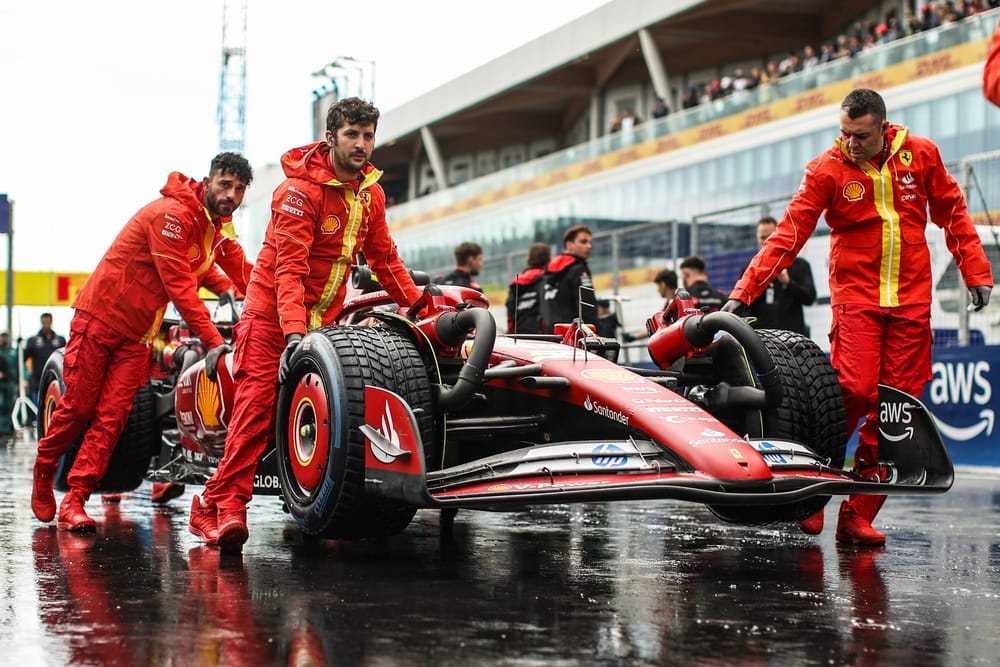Up Next

Was Ferrari’s Monaco dominance the real picture of its current competitiveness in Formula 1, or its desultory Montreal showing?
The answer is neither, and that’s not something that might have been fully understood within the team under previous regimes. That’s largely down to the leadership style of team principal Fred Vasseur, which has inevitably been tested by the past couple of weeks.
He is the embodiment of the oft-quoted couplet from Rudyard Kipling’s famous poem: “If you can meet with Triumph and Disaster and treat those two imposters just the same”. The former was Monte Carlo, the latter Canada, and neither is representative of where Ferrari really is.
After Charles Leclerc’s victory in the Monaco Grand Prix, Vasseur was asked about the team’s progress. His response was to warn that “the worst-case scenario would be to imagine that it’s done, that it will be like this until the end”. He went on to warn of different track characteristics to come, keeping his feet planted firmly on the ground.
He took the same approach in very different circumstances after Ferrari failed to get either car to the finish, or into Q3, two weeks later. Then, his words of wisdom were “we are not world champions after a good weekend and we are not nowhere after a tough weekend”.
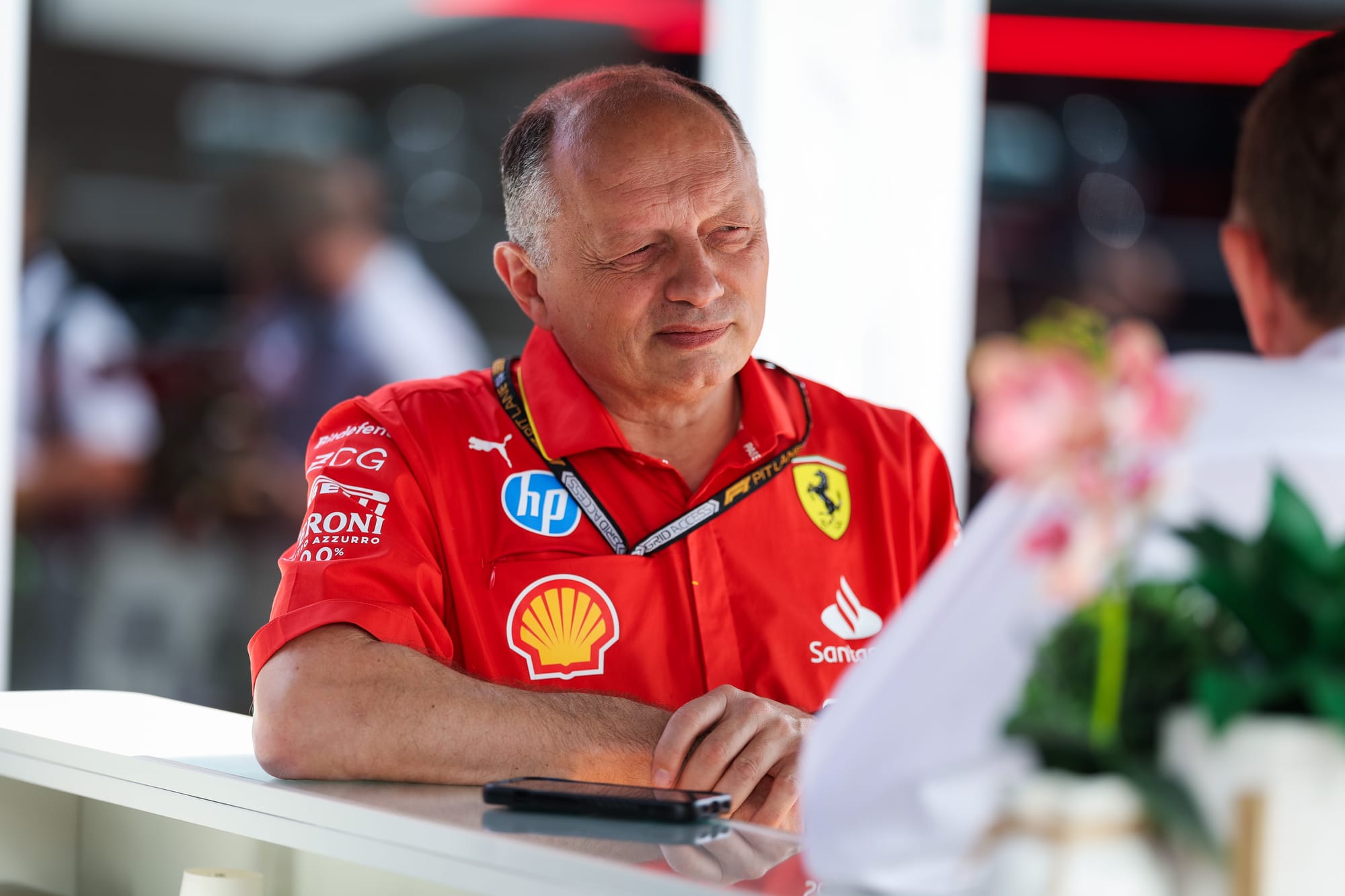
That’s typical of Vasseur, who attempts to hold the middle ground and take a realistic view of performance and progress. A calm head in victory and defeat is essential for Ferrari’s progress and helps to keep the team’s attention laser-focused on the job in hand. Forget the results, focus on the objectives.
Vasseur’s realism has been a defining characteristic of his public utterances. He shuns both optimism and pessimism in favour of realism. Contrast his level-headed responses with predecessor Mattia Binotto’s absurd statement after Charles Leclerc had thrown away a shot at victory in the 2022 French GP by crashing. Then, Binotto’s response was to say “there is no reason why not to win 10 races from now to the end”.
A throwaway remark maybe, but one that encapsulated a certain mindset. Vasseur would have simply accepted that it was a setback and kept the team on an even keel. Binotto, of course, was the product of a Ferrari environment that could be too political, but Vasseur has managed to keep such concerns away from the minds of the race and technical teams.
As for Binotto’s predecessor, Maurizio Arrivabene, his tone was steeped in arrogance and dismissed any questioning or criticism of his team from the outside. That was paired with the opposite approach internally, which was hardly right for team morale or staying focused on the job in hand.
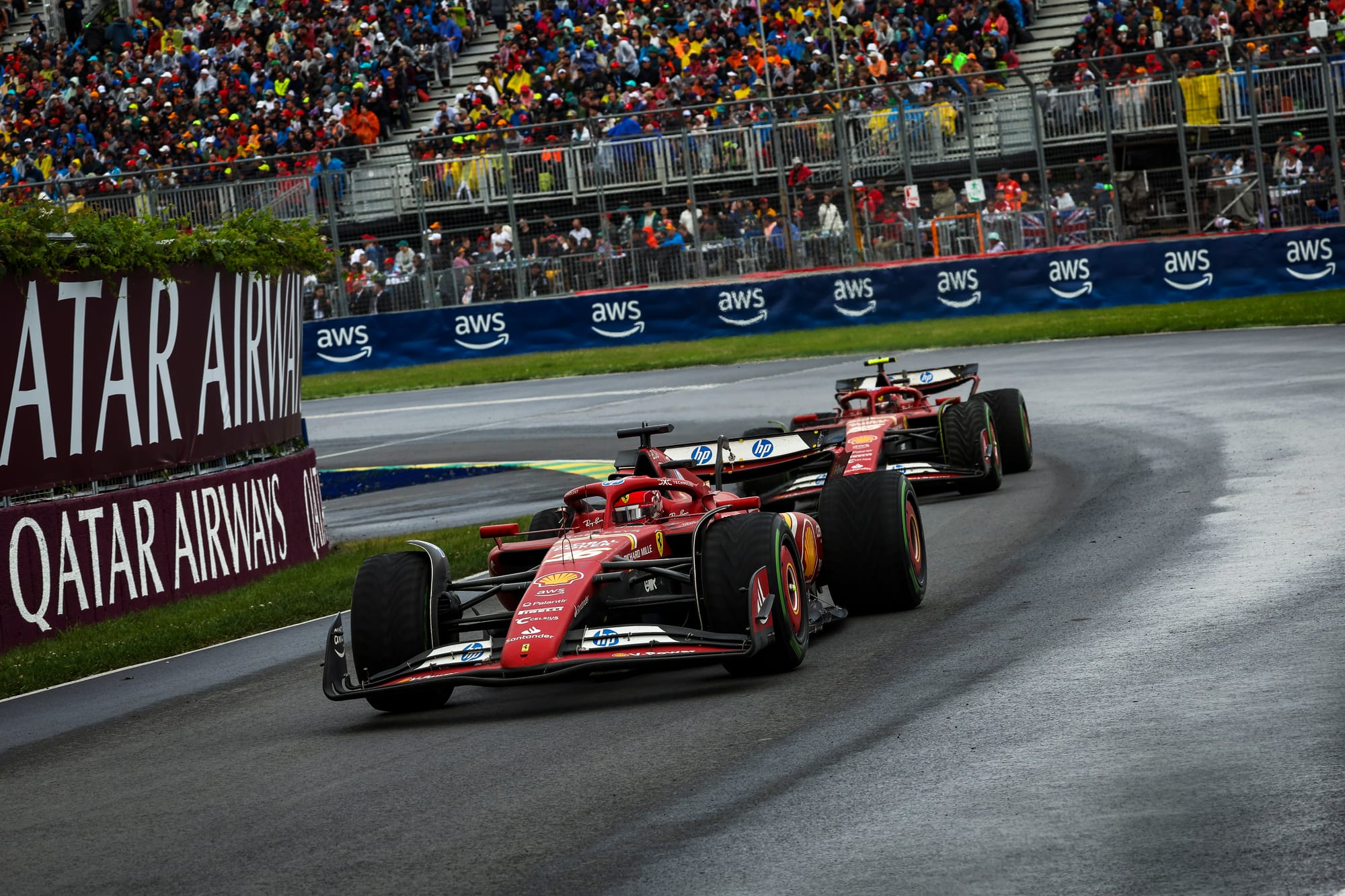
Vasseur, if anything, can be quite flat with his public utterances. But as a body or work they are revealing. The team respects his decision making, the clarity he offers and the focus on the correct processes. There are no magic bullets, so instead make everything gradually better, aggregate those marginal gains and the output will be success. He neither denies, nor overreacts to, the results of the race weekend and that clearly has a calming influence on the team.
He knows what it takes to win and is hardly an easy taskmaster. He expects much from those who work for him but also grasps the necessity of giving them the environment, facilities and structures needed to deliver. He’s also unafraid of making big decisions, with the recent change of race engineer for Charles Leclerc from Xavi Marcos to Bryan Bozzi proof of that.
He combines that with strategic thinking and patience, realising that historically Ferrari’s desperation to win the battle has so many times cost it the war. That mindset has not only allowed the recent progress but is also bringing in key recruits, who are still coming through the door at Maranello and are needed to make further gains.
A classic example of that Ferrari desperation was during 2013. It was soon clear that the Ferrari F138 wasn’t going to be a championship winner, as despite a couple of early wins it didn’t quite have the pace of that year's Red Bull. But with the new regulations looming, Luca de Montezemolo pressured for quick-fix upgrades, with development for the following year set back.
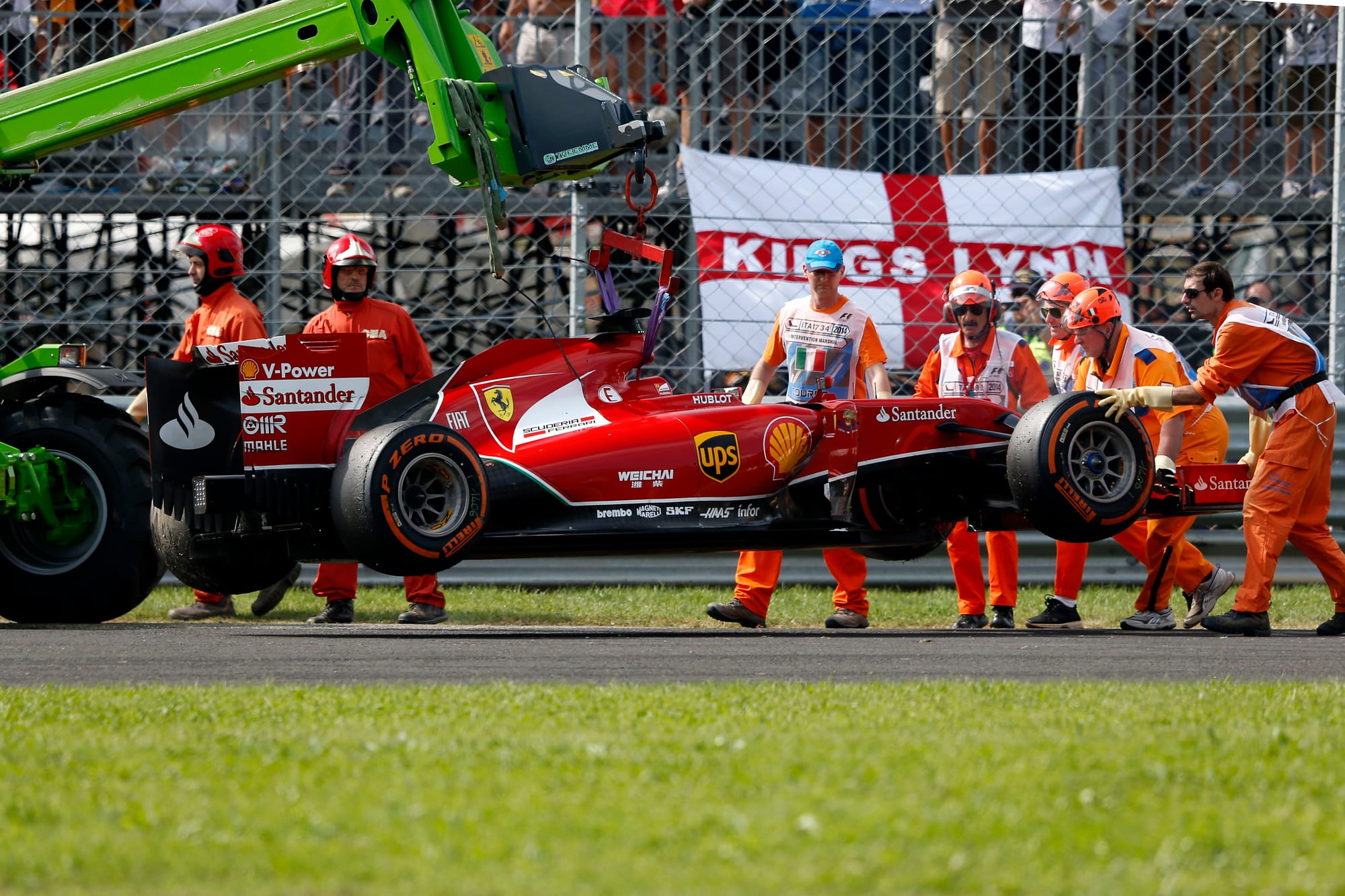
That was key to Ferrari’s terrible start to F1’s hybrid era and was symptomatic of an attitude at Ferrari that isn’t compatible with the complex modern F1 world. Progress is a slow, laborious process and requires a calm head.
None of this is to say that Vasseur’s regime is guaranteed to get Ferrari back on top in F1 and end the longest world championship drought in its history that stretches back to the end of 2008. What it does is give it a chance.
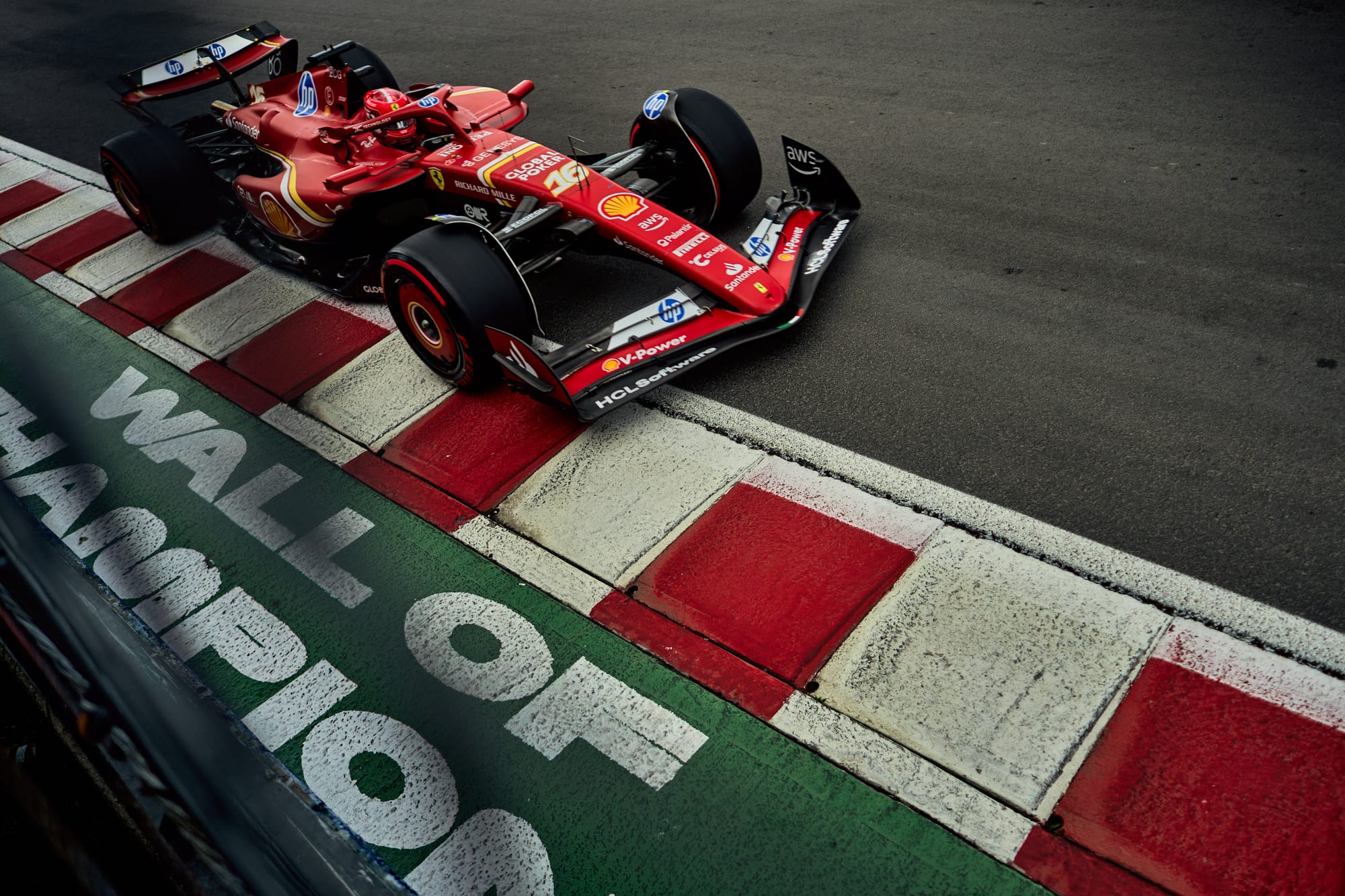
There are neither quick fixes in his world, nor jobs that are done until this is reflected in cold, hard, consistent results. Monaco was a great weekend, Montreal a terrible one - but standing bang in the middle of those extremes is Vasseur.
Canada was the worst moment for the team on track of his stint at Maranello, so the Spanish GP weekend is the first real test of whether he has been able to keep Maranello calm and focused with his stoic attitude when the whole system is stress-tested. It would be a surprise if has failed to do so.

